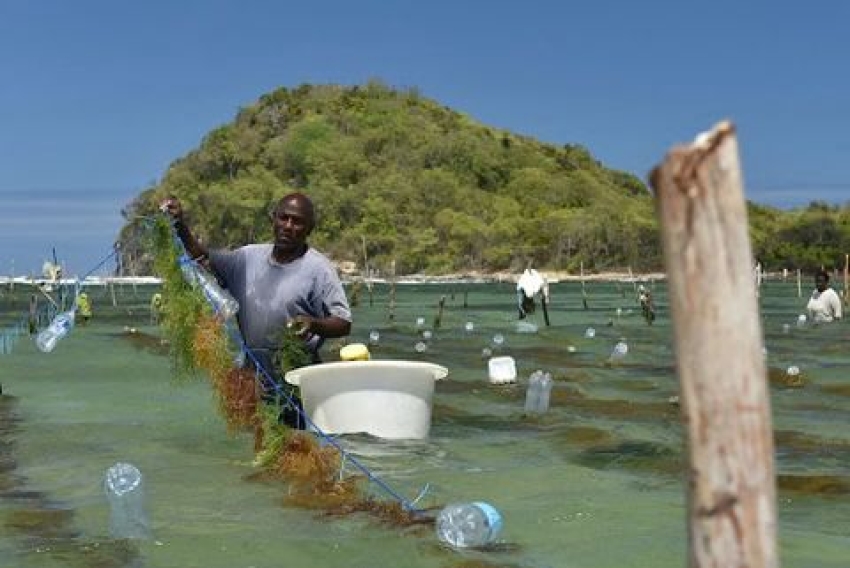Seamoss farmers have found a market here in Saint Lucia due to popular vegan and health-conscious trends as of late.
The Ministry of Health partnered with the Aupicon Seamoss Farmers and Fishers Association to train farmers in buoy construction. These devices will help with outlining the boundaries of sea moss farms
“The participants are being trained to use locally available materials to construct buoys which will be used to do the zoning and demarcation [of farms],” agriculturist Vaughn Serieux explained, continuing, “The participants have grasped the concept of the buoys and what they’ll be used for. They've been able to construct 16 of them over the last two days.” 15 farmers total took part in the training.
President of the Aupicon Seamoss Farmers and Fishers Association, Kerwin Samuel, explained the complexities of farming the crop in Savannes Bay. He says the Association will continue engaging members in various training programmes to help them adapt to environmental and economic changes.
“Seamoss is grown in Savannes Bay, which is a multi-use bay. There are different people competing for the space, so it is necessary to put structures in place to allow the different activities to function without causing conflict with each other…That is the first step. There are a number of other things that the project will help with,” Samuel says.
The President says vessels have unintentionally destroyed the farms in the past, leading to revenue loss for the farmers.
“This is one of the things that will help boost the area in marking [the area] so the boats do not go into the farm to damage the seamoss. We are happy to be part of it. It will help our economy,” he said.
Seamoss businesses have capitalized on this growing demand by offering a variety of sea moss products, including raw sea moss, sea moss gel, sea moss capsules, and sea moss-infused products such as teas, smoothie powders, and skincare products.
The Ministry of Agriculture is encouraging farmers to begin adding value to their seamoss, by manufacturing gels, powders, and other export commodities.


